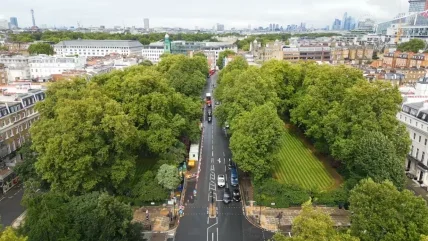
UK-based civil engineering and infrastructure specialist Barhale has been awarded contracts worth £10m as part of Thames Water’s efforts to enhance London’s water infrastructure.
The contracts have been awarded for two water main upgrade schemes, the phase two works at Victoria Station and work in the Regent’s Park region.
They bring the UK-based company’s total contractual value under the Asset Management Period 7 (AMP7) conditional allowance trunk main scheme to more than £30m.
Barhale said the works under the contract, both at Victoria Phase Two and Regent’s Park, are expected to be completed by November 2025.
Thames Water programme delivery head Jaymin Patel said: “Victoria Phase Two and Regent’s Park are part of an important programme of works to enhance the performance of the London water network.
“By investing in this critical infrastructure, we’re ensuring a more resilient water supply for Londoners while significantly reducing leaks and minimising community disruption.”
The contract for Victoria Phase 2 follows the completion of Victoria Phase 1, which upgraded the water main running beneath the streets around Victoria Station.
In the second phase, Barhale will rehabilitate the existing 30” cast iron water main that runs 400m under some of the busiest areas of London, from Eaton Square to Pont Street.
The works will primarily involve sliplining the existing asset with a 630mm SDR17 Polyethylene pipe, along with some open-cut work.
Barhale would leverage its experience in completing Phase 1 works to improve the rate of installation and reduce the impact on residents and businesses.
The works at Regent’s Park include the upgradation of the existing 30” steel water main that stretches 1.4km on the eastern side of the park.
Barhale will implement the same sliplining approach, with a 630mm SDR17 Polyethylene pipe, and use opencut for the relatively deep southern connection.
Barhale contracts manager Steve Collett said: “For different reasons, these are both really busy parts of London and we see it as a priority to minimise the impact of our work.
“Critical factors in the successful delivery of Phase One at Victoria were the investment in community engagement and our focus on reducing the physical impact of works.
“This enabled us to use fewer pits, speeding up the process and allowing us to reinstate sooner and we will be applying the same thinking through Phase Two and at Regent’s Park.”







